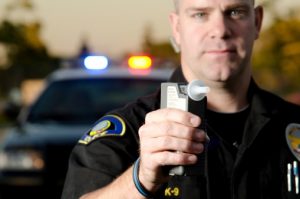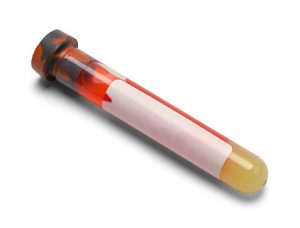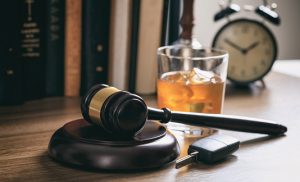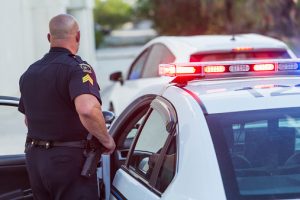Houston Drivers Could Face No Refusal Weekend Over Thanksgiving
 In 2013, there was a decline in the number of impaired driving arrests in Houston over Thanksgiving weekend. Your Houston News reported one local prosecutor believed the decline in arrests was due to no refusal weekends. No refusal weekends routinely go into effect in Houston on holidays like Memorial Day or Thanksgiving day.
In 2013, there was a decline in the number of impaired driving arrests in Houston over Thanksgiving weekend. Your Houston News reported one local prosecutor believed the decline in arrests was due to no refusal weekends. No refusal weekends routinely go into effect in Houston on holidays like Memorial Day or Thanksgiving day.
During these times, you are unable to refuse a test of your blood alcohol concentration if you are pulled over and there is probable cause to suspect impairment. If you do not agree to take field sobriety or handheld breath tests, you could be transported to a hospital nearby to undergo a blood test.
Drivers need to be aware of the impact of no refusal weekends on their rights, and need to be cognizant of the fact police will be out in full force over Thanksgiving weekend in an effort to identify suspected impaired drivers. If you are arrested and charged with DWI, you need to explore your options for DWI defense so you can fight to keep your license and aim to avoid consequences like jail time and higher insurance costs.
Houston Drivers Face Added Enforcement Efforts Over Thanksgiving
In 2014, the Texas Court of Appeals ruled it was unlawful for police to force suspected drunk drivers to undergo BAC tests without first securing a warrant. The actions of officers to force testing was considered a violation of Constitutional rights because it was an unlawful warrantless search. Houston Public Media indicated this ruling could put an end to no refusal weekends, including one scheduled for the upcoming Thanksgiving holiday weekend.
The reality, however, is the decision did not actually stop police from using these harsh tactics to try to arrest allegedly impaired drivers. Instead, as Star Telegram reported, a local district attorney in one location in Texas simply said they would find a way to make sure warrants could be issued immediately. This meant those suspected of impaired driving would still be subject to the no refusal requirement to give blood to see if they were impaired. The solution came in the form of having judges on call on holiday weekends to sign warrants, which could be sent via fax or email.
With this quick fix in place, law enforcement was able to continue scheduling no refusal weekends during times considered high risk. Those who drive on holidays, including over Thanksgiving weekend, are thus still at risk of being unable to refuse testing and being forced to take a blood test after being pulled over.
If your BAC is tested after you are pulled over for Thanksgiving, you need to make sure police followed proper protocol both for the initial traffic stop and for subsequent actions leading to a warrant being secured and your alcohol levels being tested. In their zeal to make arrests over Thanksgiving, which is considered a high-risk day for drunk driving, the rights of motorists may be infringed. If this happens to you, evidence obtained illegally cannot be used to convict you of DWI.






 Football and alcohol-use seem to go hand-in-hand, both for players and fans. According to
Football and alcohol-use seem to go hand-in-hand, both for players and fans. According to  A driver in Texas who is found guilty of operating a vehicle while impaired by alcohol can face a
A driver in Texas who is found guilty of operating a vehicle while impaired by alcohol can face a  Texas Vehicle Code Section 724
Texas Vehicle Code Section 724 Red states tend to impose harsher penalties on people who drive under the influence of alcohol, as compared with blue states.
Red states tend to impose harsher penalties on people who drive under the influence of alcohol, as compared with blue states.  When police pull you over, they may ask you questions like whether you have consumed any alcohol. A law enforcement officer may also ask you how much you’ve had to drink.
When police pull you over, they may ask you questions like whether you have consumed any alcohol. A law enforcement officer may also ask you how much you’ve had to drink. Does a defendant in Houston, Harris County and Montgomery County need to make a voluntary choice to be convicted of driving drunk? This is a question that comes up in some complex
Does a defendant in Houston, Harris County and Montgomery County need to make a voluntary choice to be convicted of driving drunk? This is a question that comes up in some complex  In the state of Texas, a driver who refuses to take a blood or breath test after a DUI arrest can have his license suspended for between 90 days and two years. The
In the state of Texas, a driver who refuses to take a blood or breath test after a DUI arrest can have his license suspended for between 90 days and two years. The  After you are
After you are  In Houston, TX, you can be arrested if you have a blood alcohol concentration exceeding the legal limit, which is set at .08 BAC. However, you can also be arrested for impaired driving even if you are not over-the-limit on alcohol. If you have drugs in your system, or a combination of alcohol and drugs, then you can find yourself charged with an impaired driving offense. A
In Houston, TX, you can be arrested if you have a blood alcohol concentration exceeding the legal limit, which is set at .08 BAC. However, you can also be arrested for impaired driving even if you are not over-the-limit on alcohol. If you have drugs in your system, or a combination of alcohol and drugs, then you can find yourself charged with an impaired driving offense. A 
